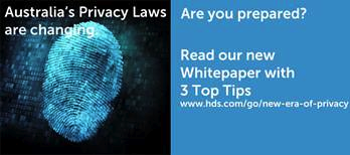 Earlier this morning I spoke about Facebook’s disturbing new “Big Cat” technology on ABC 702 Sydney, and here’s the audio.
Earlier this morning I spoke about Facebook’s disturbing new “Big Cat” technology on ABC 702 Sydney, and here’s the audio.
Big Cat is the codename for an algorithm that can apparently detect with a high reliability whether your partner is having an extramarital affair, by analysing such things as their pattern of friend formation and communication, comparing their smartphone location with what they’ve said in posts — such as whether they’re really shopping or at the gym or on a work trip — as well as language cues, such as a tendency to avoid answering direct questions.
In a way, it’s a natural extension of MIT research from 2009, which showed that a young man’s pattern of friend formation could reveal whether he was gay — often before he even knew himself. Or Target (US) being able to determine when a woman had become pregnant from her shopping list — at least with 87% accuracy.
It’s the kind of stuff I talk about in my guest lecture to UTS students — which, as it happens, I’ll be updating and presenting this coming Monday 7 April.
As I discuss with breakfast presenter Robbie Buck, however, this is a little more serious than sending someone some discount coupons on a likely hunch. Facebook had better get this right, given that confronting a partner about an alleged affair is a serious issue.
I’m hearing that the Australia test locations will be the Brisbane / Gold Coast nexus or, more likely, Adelaide, for reasons that I explain.
One thing we forgot to mention in the interview is the reason for Facebook’s codename: “Big Cat” is for catching cheaters. Oh dear.
Podcast: Play in new window | Download (Duration: 5:03 — 4.1MB)
The audio is of course ©2014 Australian Broadcasting Corporation.
 This is Privacy Awareness Week in Australia, so most of the media I’ve been involved in making is focused on privacy — although of course that’s a common topic for me in any event.
This is Privacy Awareness Week in Australia, so most of the media I’ve been involved in making is focused on privacy — although of course that’s a common topic for me in any event.
 It’s been a while since I got to talk directly to The Project presenters, but I did so last night. And I was captioned as a “Cyber Security Commentator”, which is obviously a bit special.
It’s been a while since I got to talk directly to The Project presenters, but I did so last night. And I was captioned as a “Cyber Security Commentator”, which is obviously a bit special.
